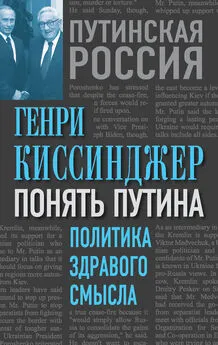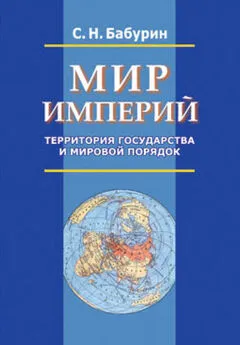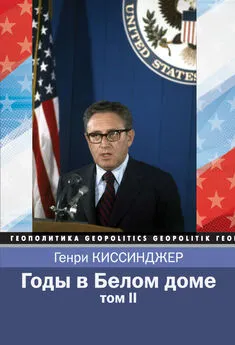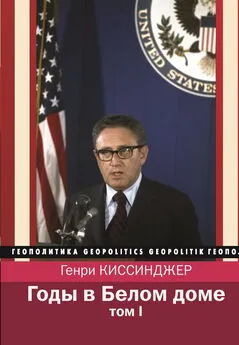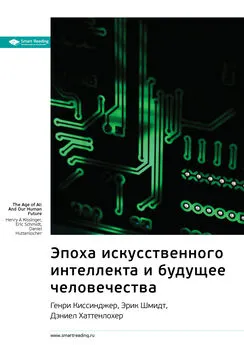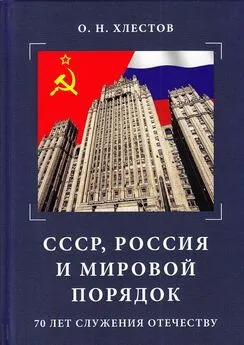Генри Киссинджер - Мировой порядок
- Название:Мировой порядок
- Автор:
- Жанр:
- Издательство:Array Литагент «АСТ»
- Год:2015
- Город:Москва
- ISBN:978-5-17-087154-4
- Рейтинг:
- Избранное:Добавить в избранное
-
Отзывы:
-
Ваша оценка:
Генри Киссинджер - Мировой порядок краткое содержание
Мировой порядок - читать онлайн бесплатно ознакомительный отрывок
Интервал:
Закладка:
David Armstrong, Revolution and World Order: The Revolutionary State in International Society (New York: Oxford University Press,1993), 192.
Islam and Revolution, 147, 265, 330–31.
R. W. Apple Jr., «Will Khomeini Turn Iran’s Clock Back 1,300 Years?», New York Times, February 4, 1979.
Charles Hill, Trial of a Thousand Years: World Order and Islamism (Stanford, Calif.: Hoover Institution Press, 2011), 89–91.
Thomas Kean, Lee Hamilton, et al., The 9/11 Commission Report (New York: W. W. Norton, 2004), 61, 128, 240–41, 468, 529.
Seth G. Jones, «Al Qaeda in Iran», Foreign Affairs, January 29, 2012, http://www.foreignaffairs.com/articles/137061/seth-g-jones/al-qaeda-in-iran.
Akbar Ganji, «Who Is Ali Khamenei: The Worldview of Iran’s Supreme Leader», Foreign Affairs, September/October 2013.
Thomas Joscelyn, «Iran, the Muslim Brotherhood, and Revolution», Longwarjournal.org, January 28, 2011.
Milton Viorst, In the Shadow of the Prophet: The Struggle for the Soul of Islam (Boulder, Colo.: Westview Press, 2001), 192.
«Address by H.E. Dr. Mahmoud Ahmadinejad, President of the Islamic Republic of Iran, Before the Sixty-second Session of the United Nations General Assembly» (New York: Permanent Mission of the Islamic Republic of Iran to the United Nations, September 25, 2007), 10.
Mahmoud Ahmadinejad to George W. Bush, May 7, 2006, Council on Foreign Relations online library; «Iran Declares War», New York Sun, May 11, 2006.
Arash Karami, «Ayatollah Khamenei: Nuclear Negotiations Won’t Resolve US-Iran Differences», Al-Monitor.com Iran Pulse, February 17, 2014, http://iranpulse.al-monitor.com/ index.php/2014/02/3917/ayatollah-khamenei-nuclear-negotiations-wont-resolve-us-iran-differences/.
Akbar Ganji, «Frenemies Forever: The Real Meaning of Iran’s ‘Heroic Flexibility’», Foreign Affairs, September 24, 2013, http://www.foreignaffairs.com/articles/139953/ akbar-ganji/frenemies-forever.
«History of Official Proposals on the Iranian Nuclear Issue», January 2013.
Lyse Doucet, «Nuclear Talks: New Approach for Iran at Almaty», BBC.co.uk, February 28, 2013.
David Feith, «How Iran Went Nuclear», Wall Street Journal, March 2, 2013.
Lara Jakes and Peter Leonard, «World Powers Coax Iran into Saving Nuclear Talks», Miami Herald, February 27, 2013.
Semira N. Nikou, «Timeline of Iran’s Nuclear Activities» (United States Institute of Peace, 2014).
Hassan Rohani, «Beyond the Challenges Facing Iran and the IAEA Concerning the Nuclear Dossier» (speech to the Supreme Cultural Revolution Council), Rahbord, September 30, 2005, 7–38, FBIS-IAP20060113336001.
Steve Rosen, «Did Iran Offer a ‘Grand Bargain’ in 2003?», American Thinker, November 16, 2008.
Joby Warrick and Jason Rezaian, «Iran Nuclear Talks End on Upbeat Note», Washington Post, February 27, 2013.
Ayatollah Ali Khamenei, remarks to members of the Iranian Majles (Parliament), Fars News Agency, as translated and excerpted in KGS NightWatch news report, May 26, 2014.
David Remnick, «Going the Distance», New Yorker, January 27, 2014.
Address by Yitzhak Rabin to a joint session of the U.S. Congress, July 26, 1994, online archive of the Yitzhak Rabin Center.
Philip Bowring, «What Is ‘Asia’?», Far Eastern Economic Review, February 12, 1987.
Qi Jianguo, «An Unprecedented Great Changing Situation: Understanding and Thoughts on the Global Strategic Situation and Our Country’s National Security Environment», Xuexi shibao [Study Times] , January 21, 2013, trans. James A. Bellacqua and Daniel M. Hartnett (Washington, D.C.: CNA, April 2013).
Immanuel C. Y. Hsu, The Rise of Modern China (New York: Oxford University Press, 2000), 315–17.
Thant Myint-U, Where China Meets India (New York: Farrar, Straus and Giroux, 2011), 77–78.
John W. Garver, Protracted Contest: Sino-Indian Rivalry in the Twentieth Century (Seattle: University of Washington Press, 2001), 138–40.
Lucian W. Pye, Asian Power and Politics (Cambridge, Mass.: Harvard University Press, 1985), 95–99.
David C. Kang, East Asia Before the West: Five Centuries of Trade and Tribute (New York: Columbia University Press, 2010), 77–81.
Kenneth B. Pyle, Japan Rising (New York: Public Affairs, 2007), 37.
John W. Dower, War Without Mercy: Race and Power in the Pacific War (New York: Pantheon, 1986), 222.
Samuel Hawley, The Imjin War: Japan’s Sixteenth-Century Invasion of Korea and Attempt to Conquer China (Seoul: Royal Asiatic Society, Korea Branch, 2005).
Hidemi Suganami, «Japan’s Entry into International Society», in Bull and Watson, Expansion of International Society, 187.
Marius Jansen, The Making of Modern Japan (Cambridge, Mass.: Belknap Press of Harvard University Press, 2002), 87.
President Millard Fillmore to the Emperor of Japan (presented by Commodore Perry on July 14, 1853), in Francis Hawks and Matthew Perry, Narrative of the Expedition of an American Squadron to the China Seas and Japan, Performed in the Years 1852, 1853, and 1854, Under the Command of Commodore M. C. Perry, United States Navy, by Order of the Government of the United States (Washington, D.C.: A. O. P. Nicholson, 1856), 256–57.
Meiji Charter Oath, in Japanese Government Documents, ed. W. W. McLaren (Bethesda, Md.: University Publications of America, 1979), 8.
Yasuhiro Nakasone, «A Critical View of the Postwar Constitution» (1953), in Sources of Japanese Tradition, ed. Wm. Theodore de Bary, Carol Gluck, and Arthur E. Tiedemann (New York: Columbia University Press, 2005), 2:1088–89.
National Security Strategy (Provisional Translation) (Tokyo: Ministry of Foreign Affairs, December 17, 2013), 1–3.
S. Radhakrishnan, «Hinduism», in A Cultural History of India, ed. A. L. Basham (New Delhi: Oxford University Press, 1997), 60–82.
Daniel Boorstin, The Discoverers (New York: Vintage Books, 1985), 104–6, 176–77.
The Bhagavad Gita, trans. Eknath Easwaran (Tomales, Calif.: Nilgiri Press, 2007), 82–91.
Amartya Sen, The Argumentative Indian: Writings on Indian History, Culture, and Identity (New York: Picador, 2005), 3–6.
Kautilya, Arthashastra, trans. L. N. Rangarajan (New Delhi: Penguin Books India, 1992), 6.2.35–37, p. 525.
Roger Boesche, The First Great Political Realist: Kautilya and His «Arthashastra» (Lanham, Md.: Lexington Books, 2002), 46.
Robert Kaplan, The Revenge of Geography: What the Map Tells Us About Coming Conflicts and the Battle Against Fate (New York: Random House, 2012), 237.
John Robert Seeley, The Expansion of England: Two Courses of Lectures (London: Macmillan, 1891), 8.
John Strachey, India (London: Kegan, Paul, Trench, 1888), as quoted in Ramachandra Guha, India After Gandhi: The History of the World’s Largest Democracy (New York: Ecco, 2007), 3.
Jawaharlal Nehru, «India’s Foreign Policy» (speech delivered at the Constituent Assembly, New Delhi, December 4, 1947), in Independence and After: A Collection of Speeches, 1946–1949 (New York: John Day, 1950), 204–5.
Baldev Raj Nayar and T. V. Paul, India in the World Order: Searching for Major-Power Status (New York: Cambridge University Press, 2003), 124–25.
Jawaharlal Nehru, «Speech to the Bandung Conference Political Committee» (1955), as printed in G. M. Kahin, The Asian-African Conference (Ithaca, N.Y.: Cornell University Press, 1956), 70.
«Agreement (with Exchange of Notes) on Trade and Intercourse Between Tibet Region of China and India, Signed at Peking, on 29 April 1954», United Nations Treaty Series, vol. 299 (1958), 70.
Pew Research Center Forum on Religion and Public Life, The Global Religious Landscape: A Report on the Size and Distribution of the World’s Major Religious Groups as of 2010 (Washington, D.C.: Pew Research Center, 2012), 22.
Mark Mancall, «The Ch’ing Tribute System: An Interpretive Essay», in The Chinese World Order, ed. John K. Fairbank (Cambridge, Mass.: Harvard University Press, 1968), 63.
Mark Mancall, China at the Center: 300 Years of Foreign Policy (New York: Free Press, 1984), 16–20.
Jonathan Spence, The Search for Modern China, 2nd ed. (New York: W. W. Norton, 1999), 197–202.
Ying-shih Yь, Trade and Expansion in Han China: A Study in the Structure of Sino-Barbarian Economic Relations (Berkeley: University of California Press, 1967), 37.
The Search for Modern China: A Documentary Collection, ed. Pei-kai Cheng, Michael Lestz, and Jonathan Spence (New York: W. W. Norton, 1999), 105. 219.
Papers Relating to Foreign Affairs Accompanying the Annual Message of the President to the First Session of the Thirty-eighth Congress (Washington, D.C.: U.S. Government Printing Office, 1864), Document No. 33 («Mr. Burlingame to Mr. Seward, Peking, January 29, 1863»), 2:846–848.
James Legge, The Chinese Classics; with a Translation, Critical and Exegetical Notes, Prolegomena, and Copious Indexes, vol. 5, pt. 1 (Hong Kong: Lane, Crawford, 1872), 52–53.
Rana Mitter, Forgotten Ally: China’s World War II, 1937–1945 (Boston: Houghton Mifflin Harcourt, 2013).
«Sixty Points on Working Methods – a Draft Resolution from the Office of the Centre of the CPC: 19.2.1958», in Mao Papers: Anthology and Bibliography, ed. Jerome Ch’en (London: Oxford University Press, 1970), 63–66.
«National Intelligence Estimate 13-7-70: Communist China’s International Posture» (November 12, 1970), in Tracking the Dragon: National Intelligence Estimates on China During the Era of Mao, 1948–1976, ed. John Allen, John Carver, and Tom Elmore (Pittsburgh: Government Printing Office, 2004), 593–594.
Graham Allison, «Obama and Xi Must Think Broadly to Avoid a Classic Trap», New York Times, June 6, 2013.
Richard Rosecrance, The Resurgence of the West: How a Transatlantic Union Can Prevent War and Restore the United States and Europe (New Haven, Conn.: Yale University Press, 2013).
Zhu Majie, «Deng Xiaoping’s Human Rights Theory», in Cultural Impact on International Relations, ed. Yu Xintian, Chinese Philosophical Studies (Washington, D.C.: Council for Research in Values and Philosophy, 2002), 81.
«Speech on Conciliation with America» (1775), in Edmund Burke, On Empire, Liberty, and Reform: Speeches and Letters , ed. David Bromwich (New Haven, Conn.: Yale University Press, 2000), 81–83.
Alexis de Tocqueville, «Concerning Their Point of Departure», in Democracy in America, trans. George Lawrence (New York: Harper & Row, 1969), 46–47.
Paul Leicester Ford, ed., The Writings of Thomas Jefferson (New York: G. P. Putnam’s Sons, 1892–99), 8:158–59, quoted in Robert W. Tucker and David C. Hendrickson, Empire of Liberty: The Statecraft of Thomas Jefferson (New York: Oxford University Press, 1990), 11.
Jefferson to Monroe, October 24, 1823, as excerpted in «Continental Policy of the United States: The Acquisition of Cuba», United States Magazine and Democratic Review, April 1859, 23.
John Winthrop, «A Model of Christian Charity» (1630). See Brendan Simms, Europe, 36.
Читать дальшеИнтервал:
Закладка:

